The remarkable story above happened in Zhengzhou, Henan province (China).
According to Chinese media, the man surnamed Qin, in his 60s, recently went to the hospital for a checkup because of a persistent cough accompanied by coughing up blood. The diagnosis showed that he had lung cancer.
During Mr. Tan's treatment, his younger brother was also confirmed to have lung cancer and liver cancer at the same time, and passed away not long after.
Upon further investigation, the doctor discovered a truth: In Mr. Tan's family, over three generations, nine people had been diagnosed with cancer.
Previously, Mr. Tan's grandparents had 1 person with esophageal cancer and 2 people with stomach cancer. Mr. Tan's father worked in a complicated environment and had lung cancer.
In addition to Mr. Tan's younger brother, his two uncles and his eldest brother were diagnosed with stomach cancer. All died of cancer.
The doctor said that the cause of Mr. Tan's family's illness was very complicated, possibly related to a toxic environment. In particular, this family had a long history of smoking. Mr. Tan himself revealed: "I have smoked for 50 years, smoking 2-3 packs of cigarettes a day."
The story of Mr. Tan's family has since attracted the attention of the online community. Many people agree that genetic factors can increase the risk of cancer in the family.
"In fact, cancer is closely related to genes. My father has 8 siblings, of which a total of 4 have cancer. My grandfather died of cancer, and my aunt's daughter also has cancer. Therefore, some cancers can be passed down from generation to generation," a social media user shared.
Further testing also revealed that Mr. Tan’s family carried a rare genetic mutation, which could be the main cause of the cancer being passed down through three generations. However, doctors did not reveal what type of gene it was.
Although genetic factors cannot be changed, doctors emphasize that a healthy lifestyle, such as quitting smoking, can definitely reduce the risk of the disease.
Professor Truong Khai, an expert from the Department of Cancer Prevention, Chinese Academy of Medical Sciences, said that among cancer cases, only 5% of patients have genetic cancer, about 20% of cancer cases are related to gene mutations, the rest are due to other factors.
Dr. Khai further explained: Having a relative with cancer does not mean that the whole family is in the high-risk group. To accurately assess your own risk when your family has a history of cancer, you need to consider 4 main factors.
First, if there is only one person in the family with cancer, people do not need to worry too much. However, if there are 2-3 family members (parents, siblings, children) with the same type of cancer, experts recommend that people consider genetic factors and have gene testing if necessary.
Next, people need to consider the age of cancer in family members. For example, the average age of breast cancer in East Asian countries is 45-49 years old; the average age of cervical cancer is 51 years old; the average age of bone marrow cancer is about 65 years old and ovarian cancer is common in women between the ages of 40-60... If a relative in your family has cancer in their 30s, it is a worrying sign.
Additionally, if a relative has a rare cancer, such as a male in the family with breast cancer, the genetic risk is also higher.
Finally, if a mother or sister has ovarian or breast cancer, experts recommend that everyone should be tested for the BRCA gene. If the test detects a BRCA1/2 gene mutation, the risk of breast cancer in Asian women can be up to 56%, the risk of ovarian cancer is 23-54%, much higher than the risk of ovarian cancer in normal women, which is about 1%.
Professor Truong Khai said that although genes play an important role, lifestyle is still the key factor in controlling the risk. Quitting smoking, eating a healthy diet, and regular health screenings can be a "shield" to protect you against this terrible disease.
Source: https://baophapluat.vn/cau-chuyen-dau-long-ve-gia-dinh-co-9-nguoi-mac-ung-thu-va-50-nam-hut-thuoc-post544823.html


![[Photo] General Secretary To Lam meets and expresses gratitude to Vietnam's Belarusian friends](https://vphoto.vietnam.vn/thumb/1200x675/vietnam/resource/IMAGE/2025/5/11/c515ee2054c54a87aa8a7cb520f2fa6e)
![[Photo] General Secretary To Lam concludes visit to Russia, departs for Belarus](https://vphoto.vietnam.vn/thumb/1200x675/vietnam/resource/IMAGE/2025/5/11/0acf1081a95e4b1d9886c67fdafd95ed)
![[Photo] General Secretary To Lam arrives in Minsk, begins state visit to Belarus](https://vphoto.vietnam.vn/thumb/1200x675/vietnam/resource/IMAGE/2025/5/11/76602f587468437f8b5b7104495f444d)



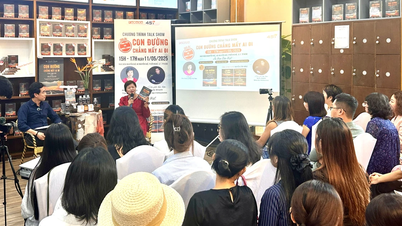









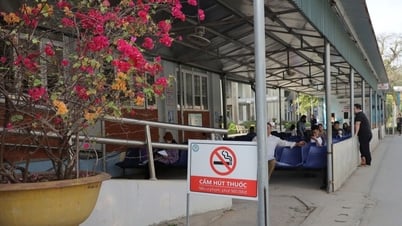


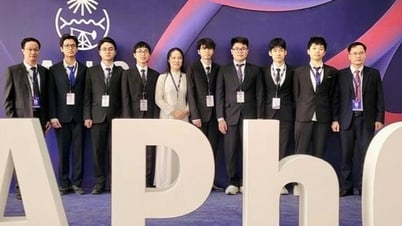


![[Photo] National Assembly Chairman Tran Thanh Man attends the Party Congress of the Committee for Culture and Social Affairs](https://vphoto.vietnam.vn/thumb/1200x675/vietnam/resource/IMAGE/2025/5/11/f5ed02beb9404bca998a08b34ef255a6)














































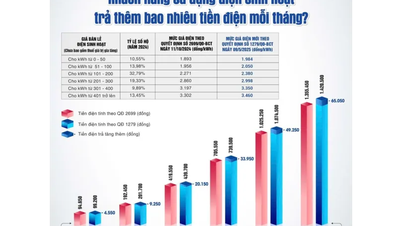



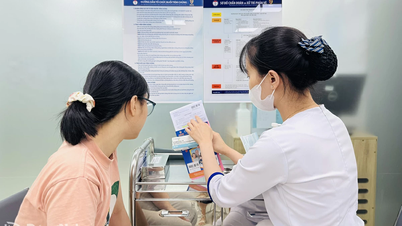



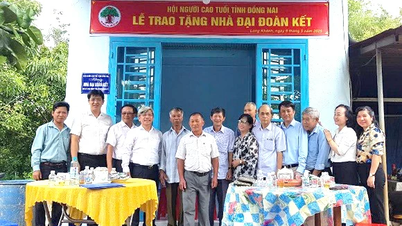










Comment (0)